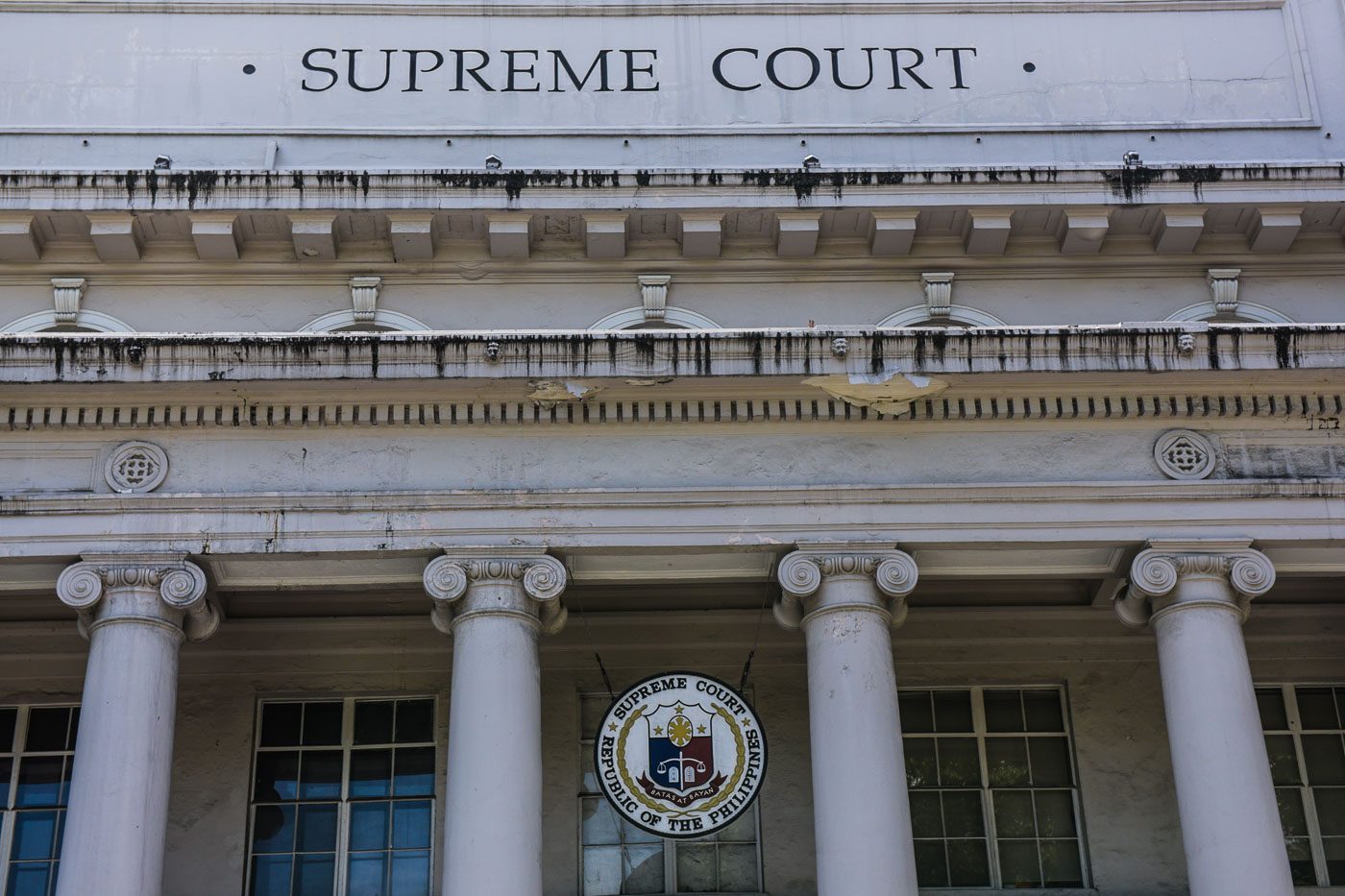SUMMARY
This is AI generated summarization, which may have errors. For context, always refer to the full article.

MANILA, Philippines – The province of Palawan has lost its claim to 40% of the total government earnings from the Camago-Malampaya gas project after the Supreme Court unanimously ruled against the local government.
This ends more than a decade of legal battle for the province, which had argued it was entitled to shares, which it estimated at P35 billion as of 2009.
The en banc voted 12-0 to grant the petition of the national government. The decision was penned by now-retired associate justice Noel Tijam, with concurrences from Chief Justice Lucas Bersamin and associate justices Antonio Carpio, Diosdado Peralta, Mariano del Castillo, Estela Perlas Bernabe, Marbic Leonen, Benjamin Caguioa, Andres Reyes Jr, Alexander Gesmundo, Jose Reyes Jr, and Ramon Paul Hernando.
Associate Justice Francis Jardeleza did not take part in the voting, while Associate Justice Rosmari Carandang was on leave.
What was the petition about? In 1990, the Department of Energy entered into Service Contract No. 39 with Shell, which eventually became a consortium made up of Shell Philippines Exploration, Chevron Malampaya LLC, and Philippine National Oil Company-Exploration Corporation (PNOC-EC).
The government and the consortium was to explore the Camago-Malampaya reservoir for gas.
Under the contract, the national government is entitled to 60% of the net proceeds from sale. The province of Palawan claimed that under the Local Government Code and the 1987 Constitution, it is entitled to 40% of the national government’s 60%. (READ: COA defies 3 admins: Contractors should pay P146B Malampaya tax)
Here are the relevant legal provisions they attached to their claim:
LOCAL GOVERNMENT CODE: Section 290. Amount of Share of Local Government Units. – Local government units shall, in addition to the internal revenue allotment, have a share of forty percent (40%) of the gross collection derived by the national government from the preceding fiscal year from mining taxes, royalties, forestry and fishery charges, and such other taxes, fees, or charges, including related surcharges, interests, or fines, and from its share in any co-production, joint venture or production sharing agreement in the utilization and development of the national wealth within their territorial jurisdiction.
CONSTITUTION: SECTION 7. Local governments shall be entitled to an equitable share in the proceeds of the utilization and development of the national wealth within their respective areas, in the manner provided by law, including sharing the same with the inhabitants by way of direct benefits.
In 2007, former president Gloria Macapagal Arroyo signed Executive Order No. 683 that allowed Palawan “to securitize their respective shares in the 50% of the disputed 40% of the Net Government Share in the proceeds” while cases were ongoing.
Palawan never received any amount despite Arroyo’s EO, said Harry Roque, who represented a group from Palawan that petitioned the Supreme Court for the 40% share.
What did the Supreme Court say? The en banc ruled that Palawan is not entitled to profit sharing, not based on the provisions cited above, but because the Court said jurisdiction refers only to land area.
The national government wanted the Court to rule based on the provisions cited above, but the Court said that to do so would “render Section 7 of Article X nugatory for in such case, it will not be possible for any LGU to benefit from the utilization of national wealth.”
Instead, the Court focused on the meaning of jurisdiction as it applies to this case.
“Unless clearly expanded by Congress, the LGU’s territorial jurisdiction refers only to its land area,” said the Supreme Court in a 94-page decision signed on December 4, 2018, but only released to media on Wednesday, January 23.
The SC relied on an earlier decision in Tan vs Comelec, where the High Court “interpreted territory to refer only to the mass of land above sea water and excludes the waters over which the political unit exercises control.”
“Tan, in fact, establishes that a Local Government Unit (LGU) may have control over the waters but may not necessarily claim them as part of their territory. This supports the Court’s finding that the exercise of authority does not determine the LGU’s territorial jurisdiction,” the SC said.
Palawan argued that its prosecutors and courts had handled complaints of illegal fishing in the area, and therefore means that they have jurisdiction in that part of the ocean.
The SC did not agree, saying: “The LGU’s authority to adopt and implement measures to protect the environment does not determine the extent of its territorial jurisdiction.”
Palawan also invoked Presidential Decree No. 1596, which constituted the Kalayaan Island Group. PD 1596 included the sea-bed, sub-soil, continental marching and air space in the jurisdiction of the Kalayaan islands. The decree also declared Kalayaan as a “distinct and separate municipality of the Province of Palawan.”
The SC said Palawan could not use the decree for this purpose because it referred to Kalayaan only.
“To hold otherwise is to expand the province’s territory, as presently defined by law, without the requisite legislation and plebiscite,” said the justices. – Rappler.com
Add a comment
How does this make you feel?
There are no comments yet. Add your comment to start the conversation.